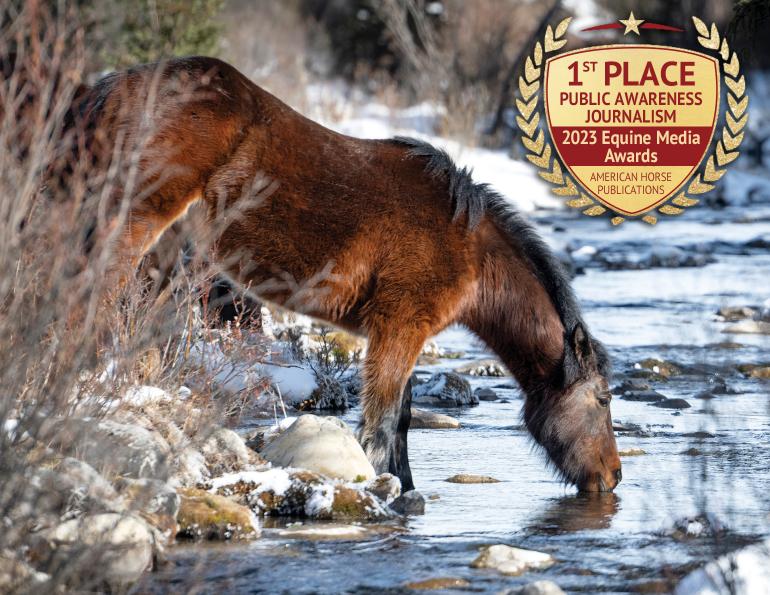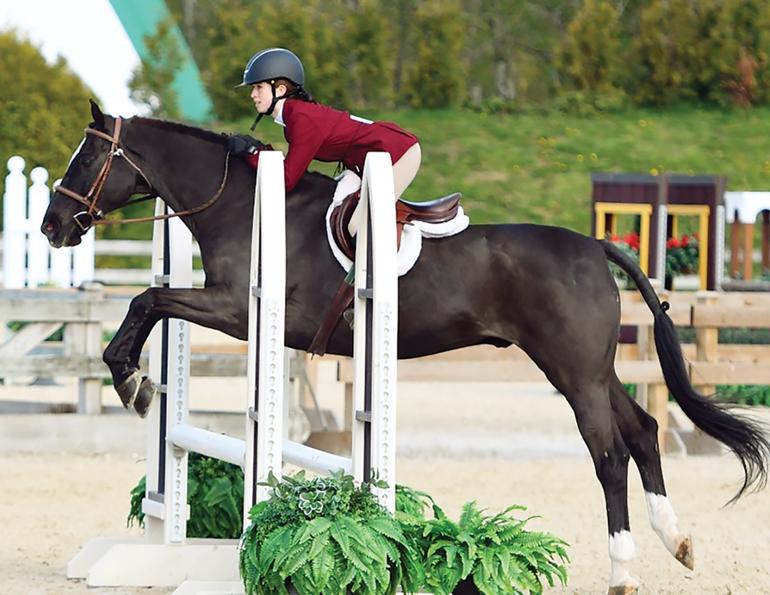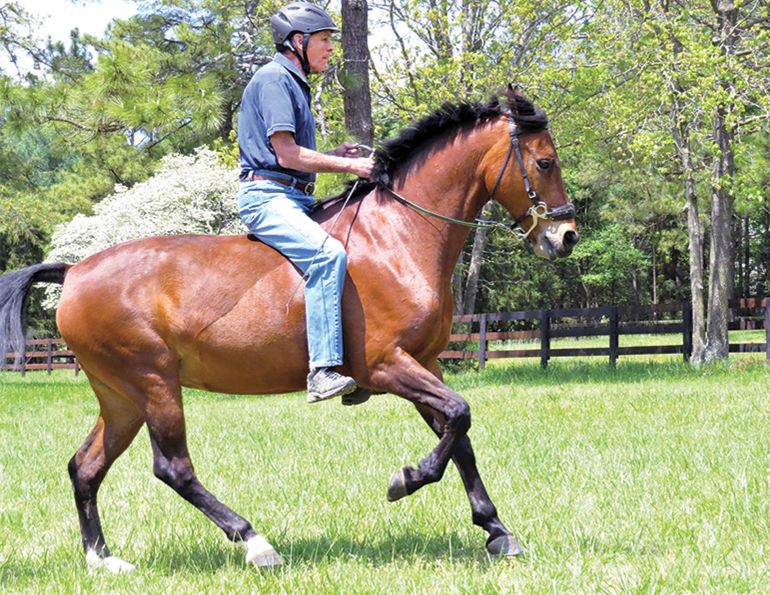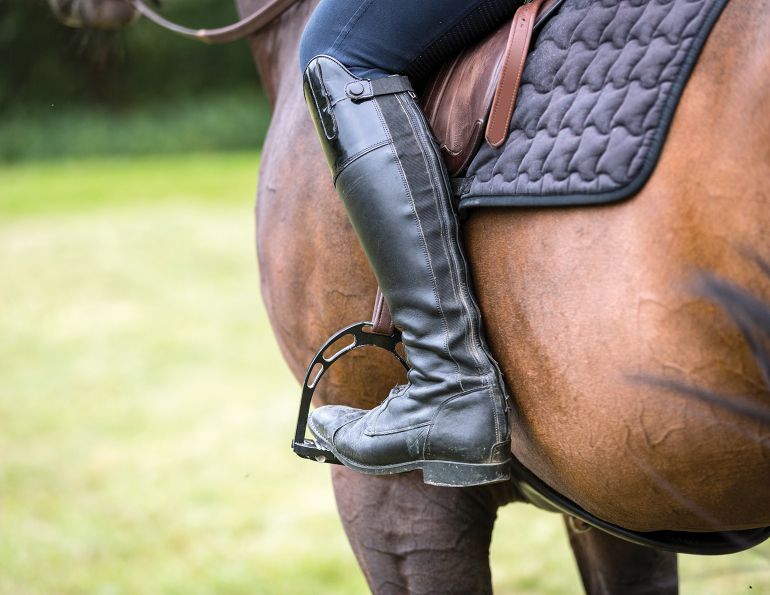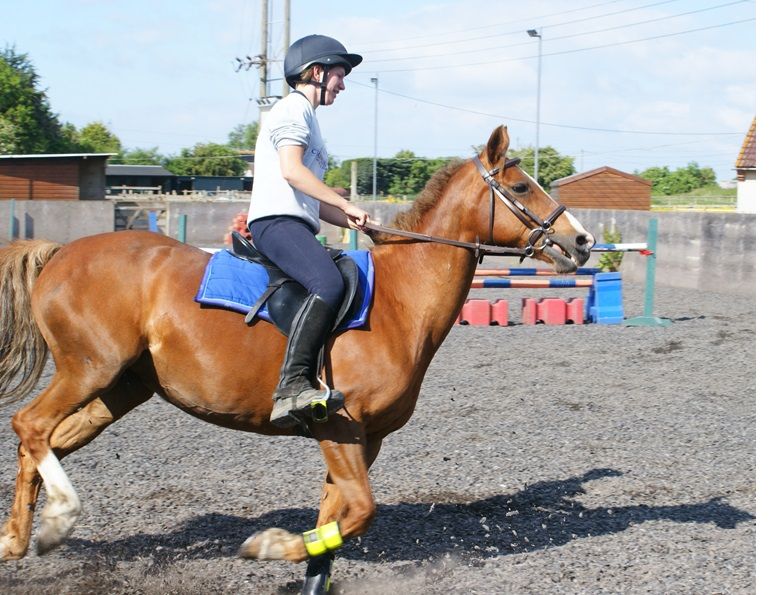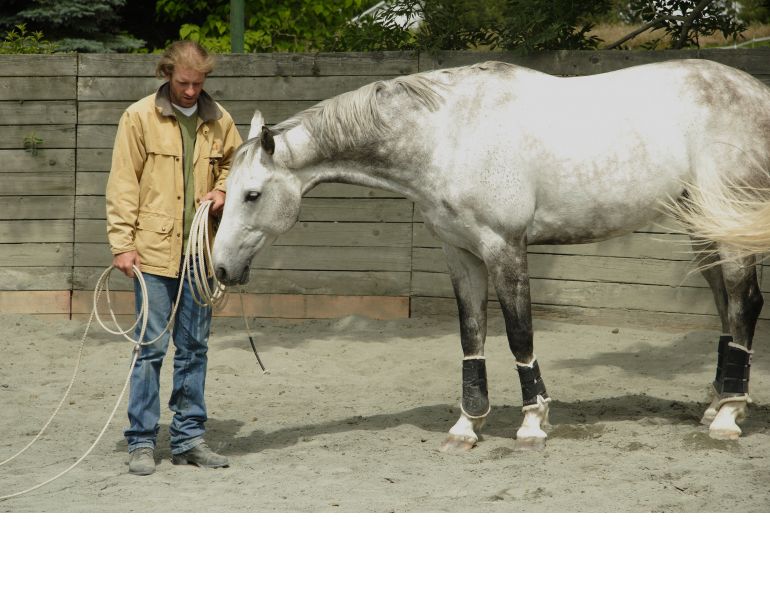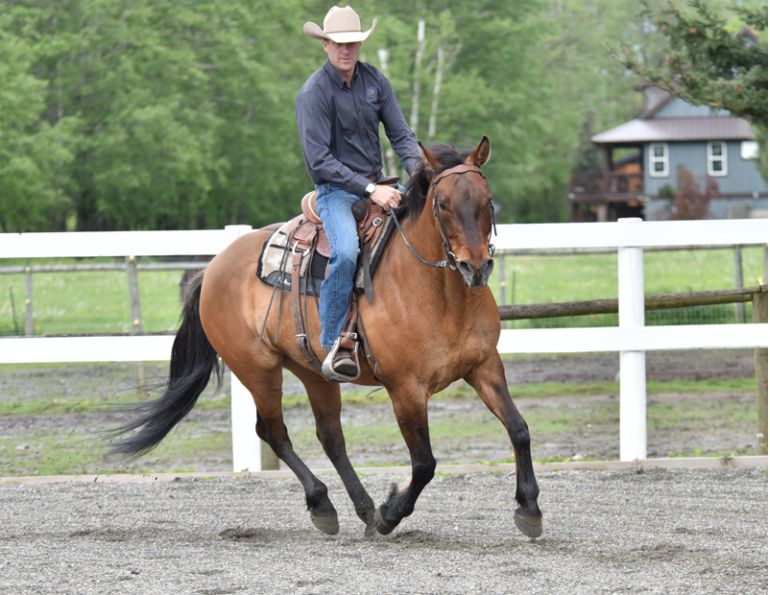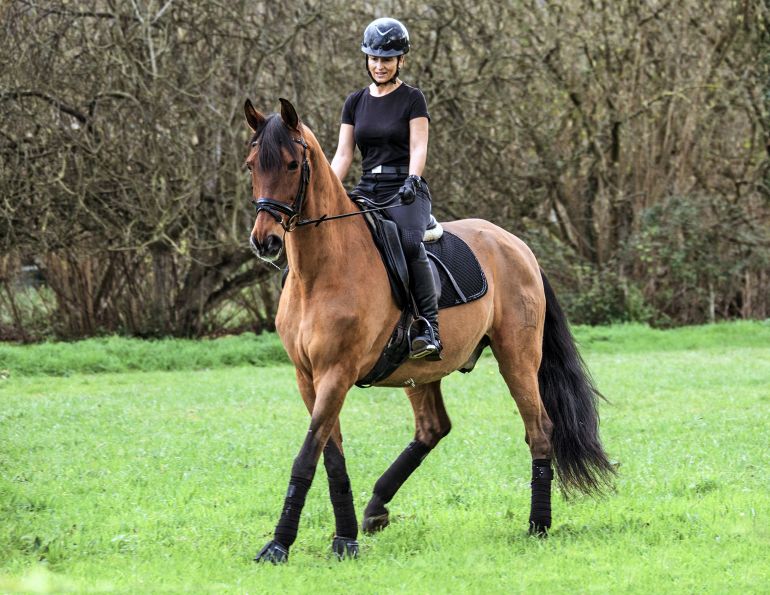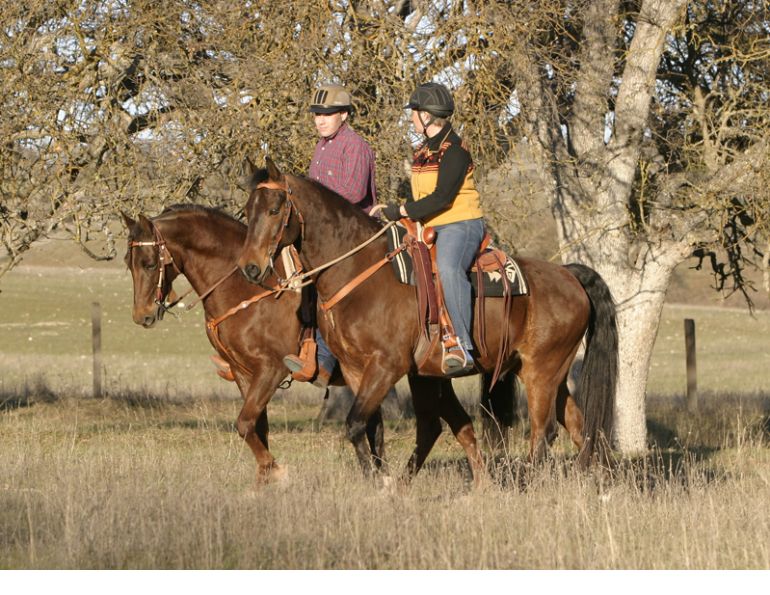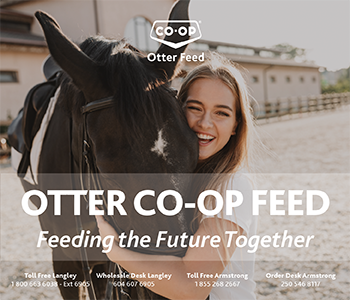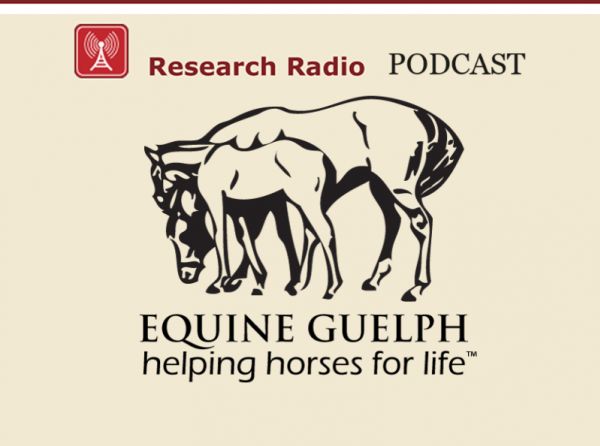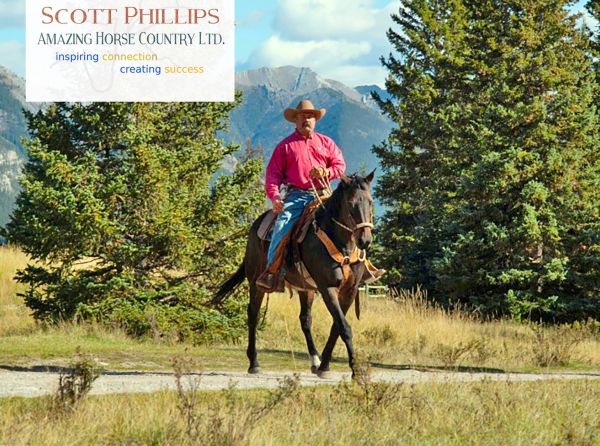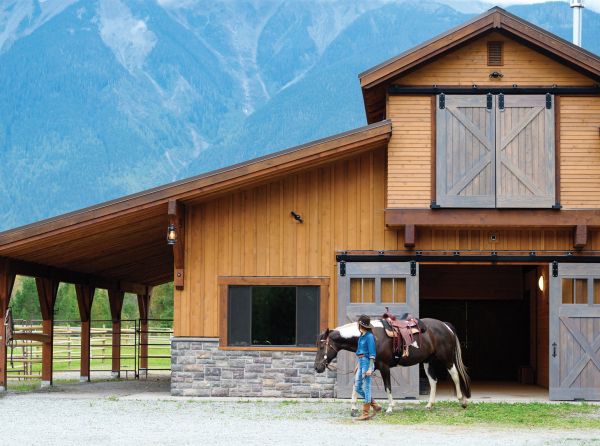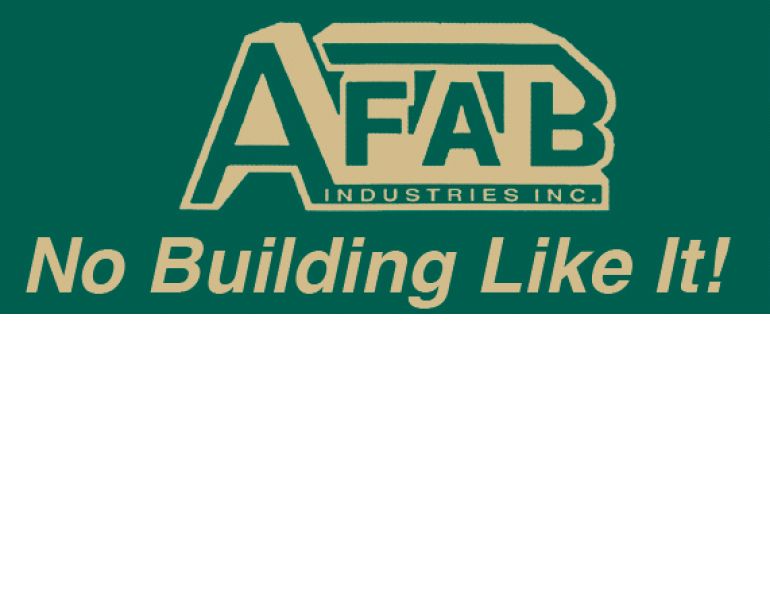By Will Clinging
There is always a reason when things go wrong, and we have to accept at least half of the responsibility. Remember it is we who are asking for certain acceptable behaviour; if we have not defined what is actually acceptable then the horse is right to be wrong.
Once horses are further along in their training, problems can take on a different dynamic. When a horse is inexperienced with little or no understanding of what our expectations are, the problems are usually pretty obvious and relatively easy to diagnose if we start working backwards from where things went wrong. If the horse that is generally reliable and predictable starts to misbehave in certain predicaments, it is easy to jump the gun and assume that the inappropriate action is situational. This can be the case but there might be more below the surface than you think.
I will share a scenario: I worked with a horse that is a very talented dressage horse that had just started schooling Prix St. George. What seemed to bother him the most was noise that he could hear outside the indoor arena but couldn’t see. The arena where he is ridden has no windows, but large doors on either end. Most of the year the doors are open, allowing the bright light from outside to form a large bright spot the size and shape of the door. This obviously bothered him; from time to time he would catch a glimpse in his peripheral vision of something moving outside the doors, or hear something he thought he should be able to see but couldn’t. Needless to say, he got upset in a similar location semi-frequently.
His rider’s normal correction was to try and regain his attention when he would get distracted and this caused him to spook and overreact. His overreactions would get quite big as he was genuinely afraid. This then lead to anticipating that every time he would circle next to the door something would come out of nowhere and scare him. His riders weren’t sure why their correction of getting his attention back was not working. In fact it seemed to be making things worse.
I have known this horse for several years and he went through a similar phase two years ago. Part of what was happening at that time was that his training had been pushed from first to second level. The increased expectation in performance was difficult for him because work that he had been good at was now more that he could comfortably do. He is a talented horse and physically should have no difficulty with the work, but mentally it was hard for him.
Since then he has been going well. He is in a high quality training program with a conscientious trainer and rider. They have brought him along slowly and he is quite confident except for this apparent spookiness at the door.
When I rode the horse he was behaving very well; there was a little confusion due to my lack of talent riding a horse schooled to his level, but he felt very solid. When I approached the door at one end he balked very slightly and then continued. As I circled back to the door he felt apprehensive but did not balk. Then it dawned on me that he was waiting to get corrected as we approached the door. When I just kept riding him without offering him any correction he just kept going. As I approached the other door the same sense of apprehension was there. He did nothing wrong except stiffen slightly, but he remained obedient.
The second time around as he tensed I put my hand on his neck to let him know that he was not in trouble and I told him it was up to him whether he wanted to spook or not. He did not. I continued this for a few more circles and each time he relaxed more and more until he finally stopped thinking that he needed to be scared. I then went on to have the nicest ride on a horse that I have had in a very long time.
As I thought more and more about that ride I came to believe that he needed to be more responsible in how he behaved in that situation. When his riders corrected him to try to make him more attentive it took away his responsibility and in a sense made it acceptable for him to overreact. In his mind we caused him to overreact because we overreacted first. By doing nothing and giving him the choice in how he should respond he accepted that responsibility back. He did not want to spook but he felt almost obligated to do so until I let him have to option not to.
It is hard for us as riders to give up some control. However, if we could learn to give some of the responsibility back to our horse he would feel more involved and more in control of his own behaviour. We must keep authority but we need to learn not to micro manage; rather we should delegate and allow the horse the responsibility to do his job.
Something that I have come to accept and embrace is that sometimes the less we do the better off we are. I believe horses are capable of so much more than we think!
Main Photo: Horses often overreact because the rider has overreacted first. Instead, do nothing and give your horse the choice to decide whether or not he really wants to spook. Credit: Shutterstock/Rolf Dannenberg




